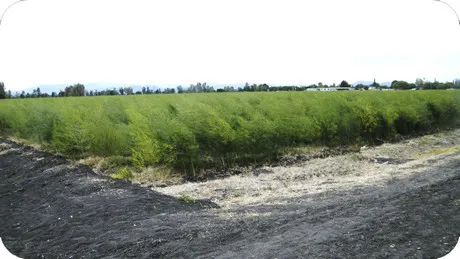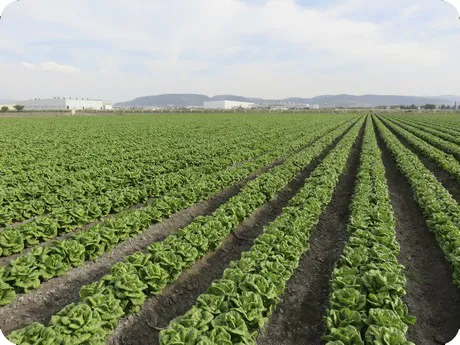The Mexican asparagus season is about to start, although it has arrived with a little delay due to the adverse weather conditions which affected the country earlier this year. Ervin García and Sergio Ruiz talk about the asparagus market and their company, Vidimport.

Early June
"We expect to start in June and finish in early August. This year, we will start a little later because of the weather," explains Sergio Ruiz, of Vidimport. "We suffered some frost and freezing temperatures in January and February, which affected the crops, so now we have some delay in the production. The harvest should start between the first and second week of June," affirms Ervin García.
These weather issues have not taken a toll on the total production volume. The company expects to export 73,000 cases in 2016 from its 88 hectares of asparagus. "The problem is that we'll have a lot of produce in a shorter period. Instead of 100 cases in two weeks, we'll have 100 cases in just a week and a half," continues García, who also expects good prices, especially at the beginning of the season.
United States and Mexico
The company grows asparagus and other products for the domestic market and the US. "95% of our asparagus production is intended for the United States and the rest stays in Mexico. If we look at the total asparagus and leafy vegetable production, 78% goes to the domestic market and the rest to the United States," estimates García.
In the US market, Mexican asparagus coexists with California's production for a couple of months, but they barely compete, because they are aimed at different regions of the country. "Californian products are mainly intended for the west and northwest, while the asparagus that we export go to the northeast," states García. As a result, he expects more stable prices there. Shipments to the US are made by truck.
In the domestic market, the company caters mostly to retail stores; it also sells its products to wholesale markets, mostly those of Mexico City, Guadalajara and Monterrey. "Mexican consumers are becoming more familiar with asparagus. It is still not considered a commodity by Mexican families," explains García. "It is not a very common flavour, but Mexicans are getting used to it. They are mostly interested in its health properties." He adds that the market is on the rise, with about 20% growth per year, although not many products are sold there yet because the US market is much more stable and offers better prices.

Fresh Garden
Vidimport markets its vegetables under the brand Fresh Garden. In addition to asparagus, it works mainly with leafy vegetables and some specialties. "We have a 200 hectare farm in the state of Queretaro and some extra acreage in the state of Guanajuato. In total, we have about 450 hectares for all our products," affirms García. "Our biggest product is the Sucrine lettuce; we have Baby lettuce and we are the only producer of endives in Mexico. We also have other products, such as peas, Brussels sprouts and, of course, asparagus," he outlines. Its green asparagus are of the UC150 and UC157 varieties.
The group of companies is present in 14 countries. "We supply our products to markets across Central America (El Salvador, Guatemala, Panama and Costa Rica), as well as in South America (Ecuador, Colombia, Venezuela, Peru and Chile) and the United States." They have another office in Barcelona, Spain, although they don't ship vegetables there, but rather fruits. "70% of the products we have globally are specialty fruits, and the rest are vegetables and other products."
The trader explains that what makes them stand out from other producing countries, which also constitutes one of their strengths, is their ability to buy products. "We are very strong in terms of volume. We have three offices in California, Peru and Chile that are completely focused on purchases."
Ruiz, for his part, mentions the company's certifications. "We have the Kosher, Primus GFS and Senasica certifications, which are the three biggest ones. Furthermore, the water we use comes from groundwater wells, which is safer to use than river water," he concludes.

More information:
Sergio Ruiz Esparza Herrera
Vidimport CuautitlánT: (55) 26203915 Ext. 5207
E:
sruiz@vidimport.com.mxSkype: sergio-vidimport


 More information:
More information:


 More information:
More information: